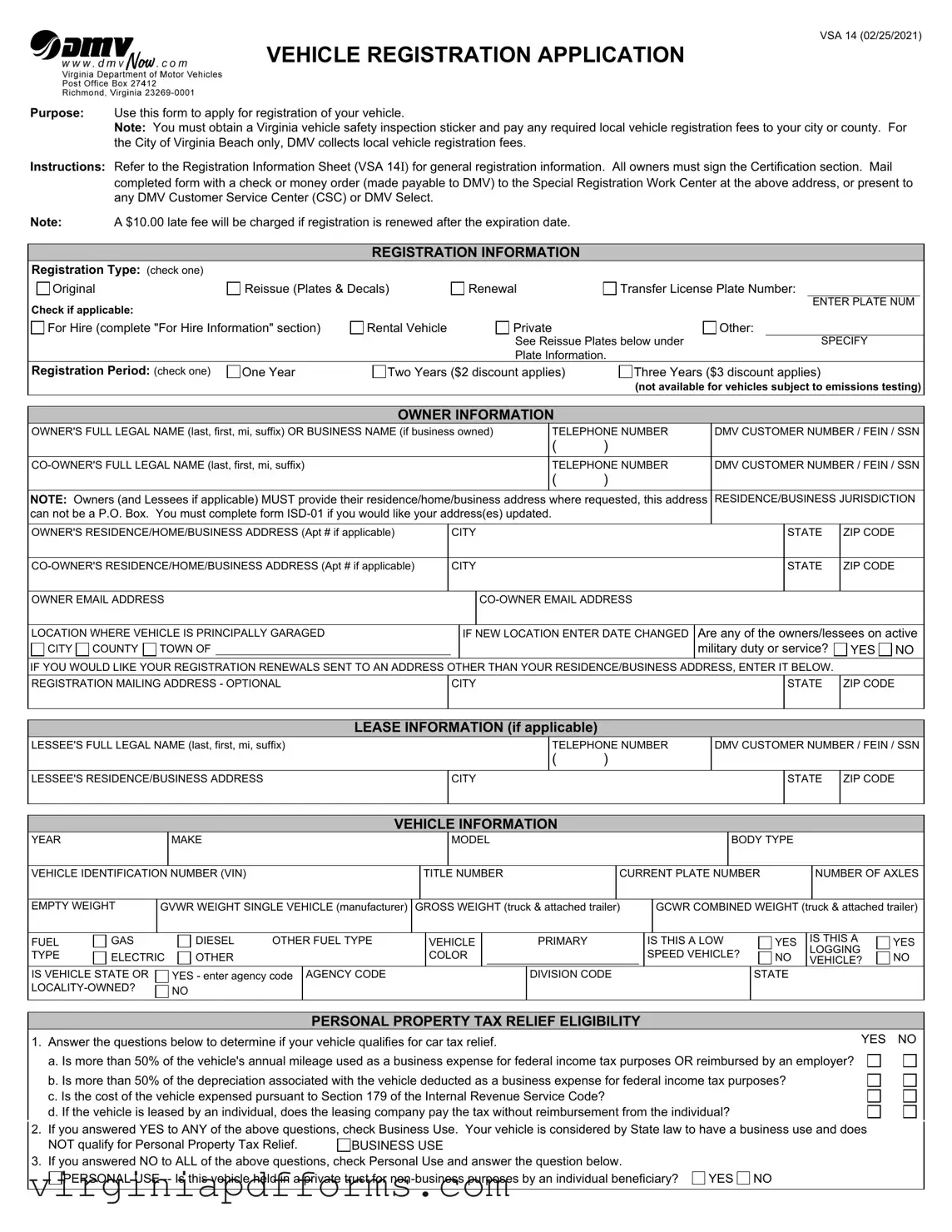Fill in a Valid Virginia Dmv Registration Template
The Virginia DMV Registration Form is a crucial document required for registering motor vehicles in the state of Virginia. This form captures essential information about the vehicle, including its title number, vehicle identification number (VIN), and registration details. Proper completion and submission of this form ensure compliance with state laws and help maintain accurate records with the Department of Motor Vehicles.
Access My Document Now

Fill in a Valid Virginia Dmv Registration Template
Access My Document Now

Access My Document Now
or
Free Virginia Dmv Registration File
Need this form wrapped up fast?
Finish Virginia Dmv Registration online — edit, save, download without effort.